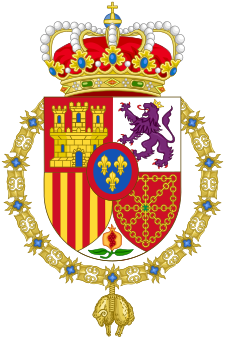Please see below an English version of the article in the Treaty of Utrecht where Philip V, King of Spain, renounces "for ever and ever" all succession rights to the French throne that he or any of his descendants had or would eventually have in the future. The text leaves no margin for doubt and makes it clear that in the absence of any male descendants of Louis XIV in male line other than Philip's own descendants, the succession should pass to the male descendants (in male line) of Philip's uncle, the Duke of Orléans.
"I, Don Philip, by the Grace of God King of Castile etc... do... for myself, for my Heirs and Successors, renounce, quit, and relinquish for ever and ever all Pretensions, Rights and Titless which I have, or any Descendent of mine hath at present, or may have at any time to come, to the Succession of the Crown of France; and I declare, and hold myself for excluded and separated, me, and my Sons, Heirs, and Descendents for ever, for excluded, and disabled absolutely, and without Limitation, Difference and Distinction of Persons, Degrees, Sexes and Time, from the Act and Right of succeeding to the crown of France.... and the Succession to the said Crown of France is at any time, and in any case to be settled on, and given the same manner, as if I and my Descendents had not been born, or been in the World... I will and consent for myself, and for my Descendents, that from this time, as well as then, this Right be looked upon and considered as passed over, and transferred to the duke of Berry my brother, and to his Sons and Descendents, being Males, born in constant lawful Marriage; and in default of Male Issue, to the Duke of Orleans my Uncle, and to his Sons and Descendents, being Males born in constant lawful Marriage.."
The Treaties of Utrecht
"I, Don Philip, by the Grace of God King of Castile etc... do... for myself, for my Heirs and Successors, renounce, quit, and relinquish for ever and ever all Pretensions, Rights and Titless which I have, or any Descendent of mine hath at present, or may have at any time to come, to the Succession of the Crown of France; and I declare, and hold myself for excluded and separated, me, and my Sons, Heirs, and Descendents for ever, for excluded, and disabled absolutely, and without Limitation, Difference and Distinction of Persons, Degrees, Sexes and Time, from the Act and Right of succeeding to the crown of France.... and the Succession to the said Crown of France is at any time, and in any case to be settled on, and given the same manner, as if I and my Descendents had not been born, or been in the World... I will and consent for myself, and for my Descendents, that from this time, as well as then, this Right be looked upon and considered as passed over, and transferred to the duke of Berry my brother, and to his Sons and Descendents, being Males, born in constant lawful Marriage; and in default of Male Issue, to the Duke of Orleans my Uncle, and to his Sons and Descendents, being Males born in constant lawful Marriage.."
The Treaties of Utrecht




